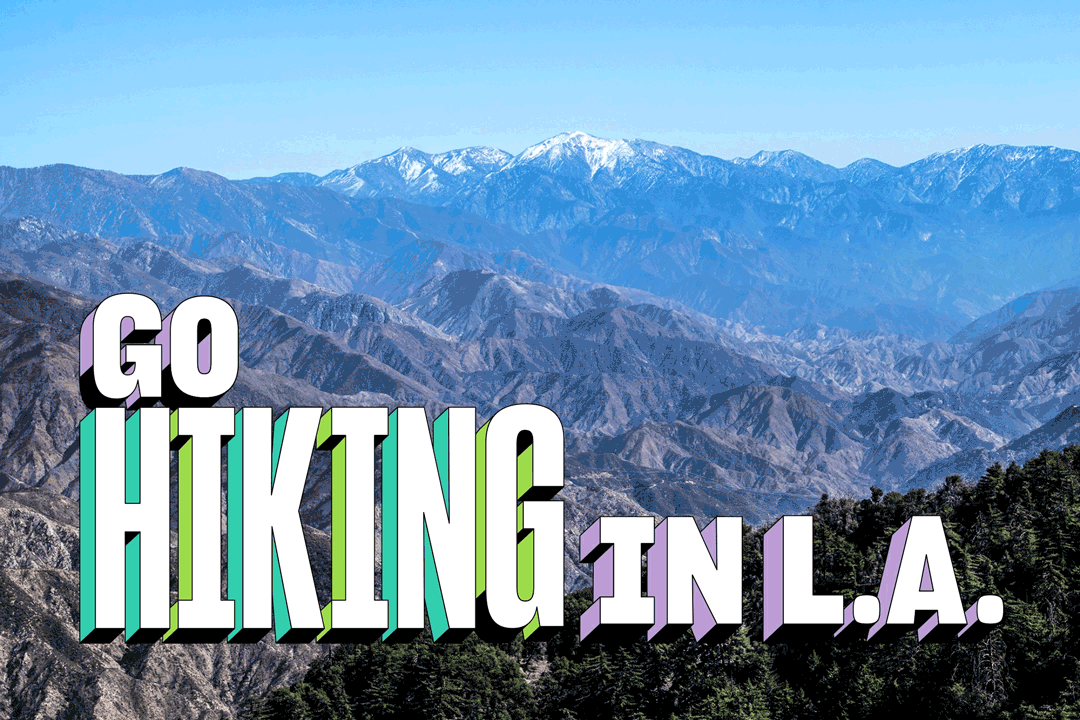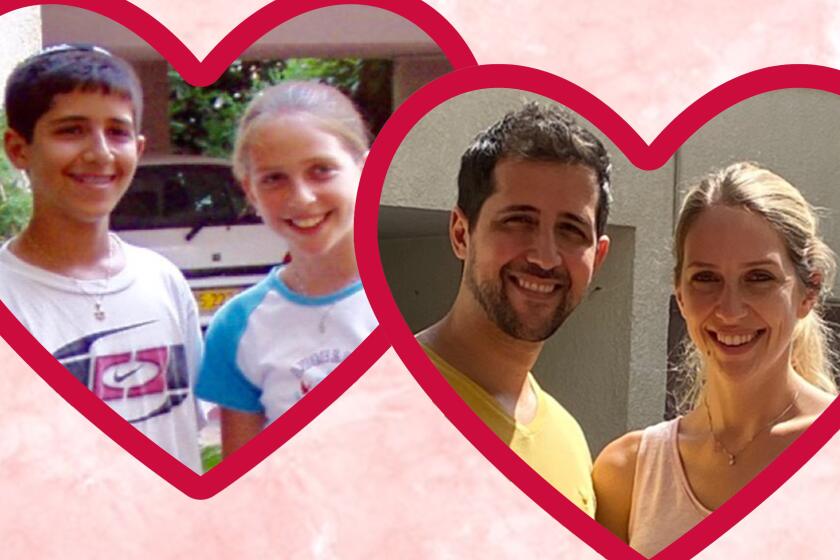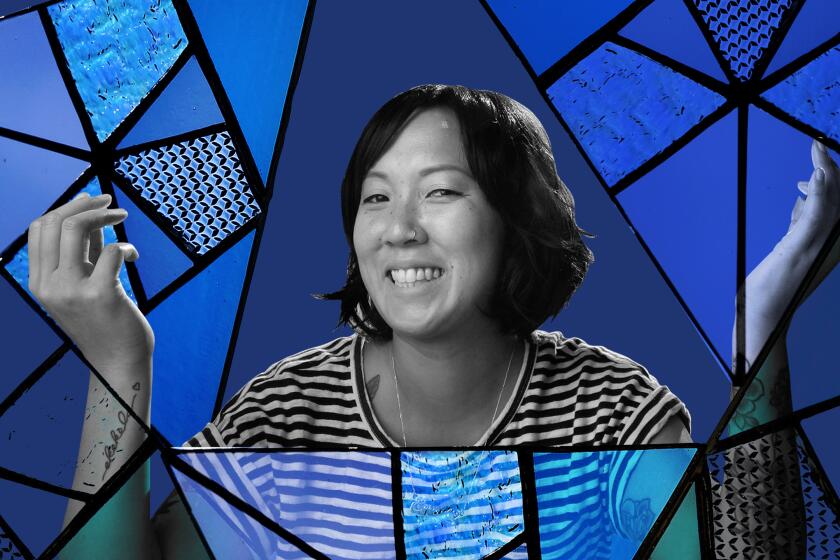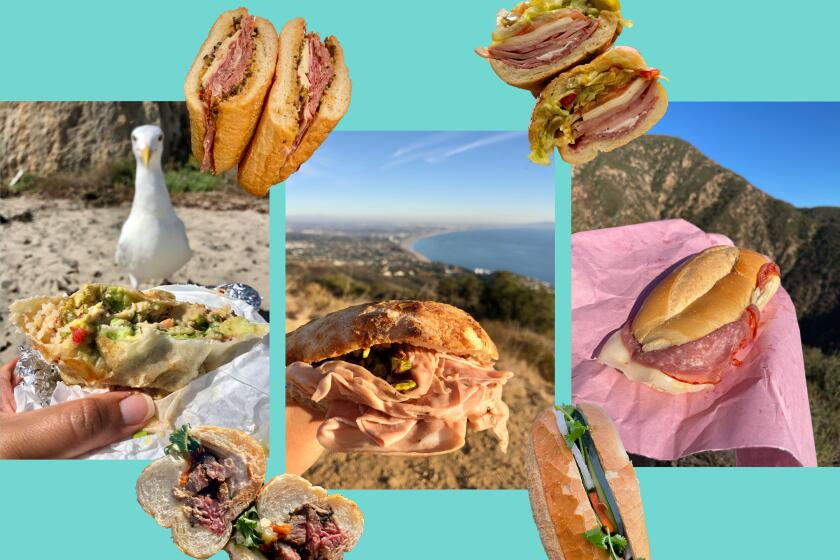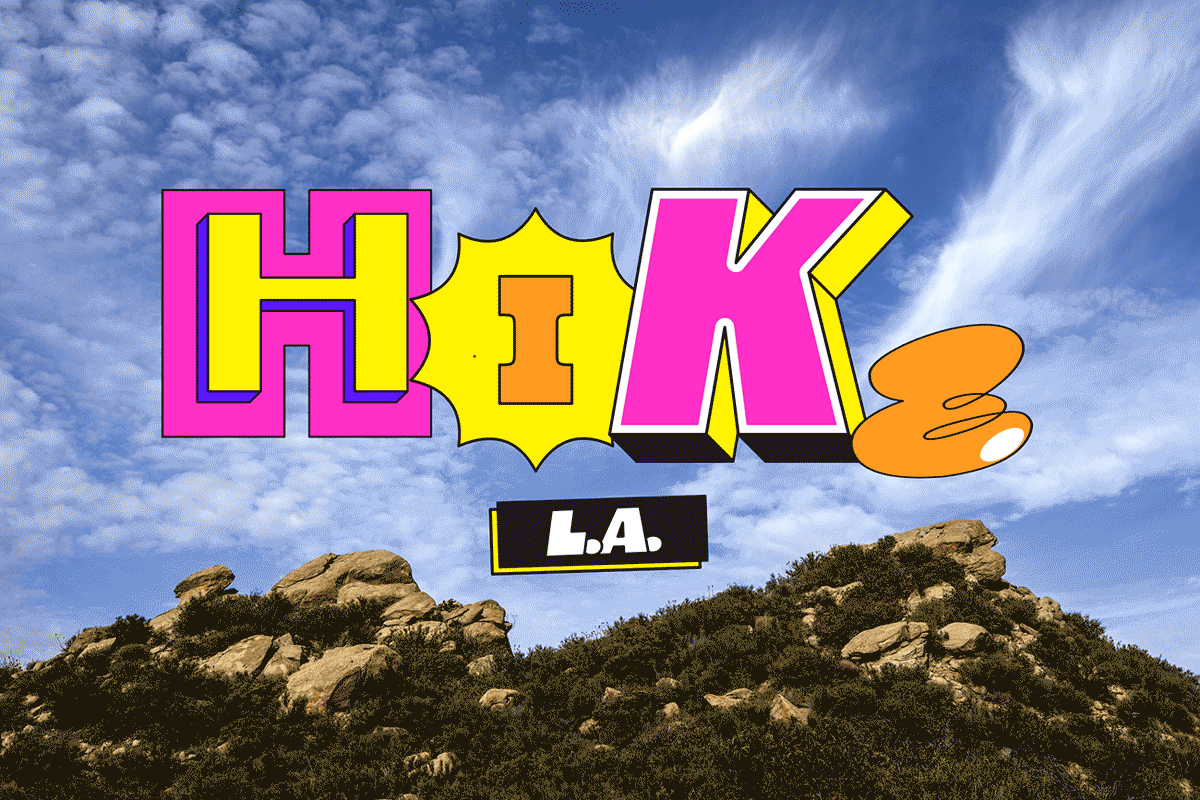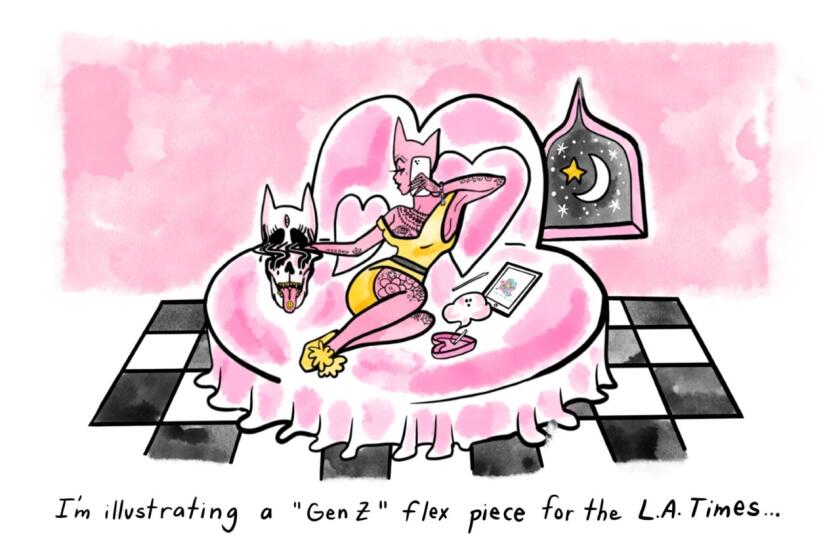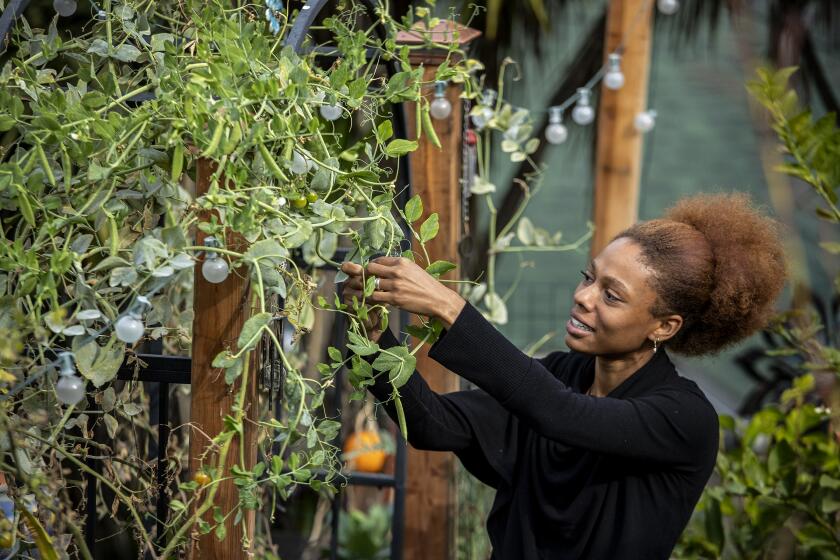The world is reopening and I’m worried. How will I hold on to the friendships I’ve built?
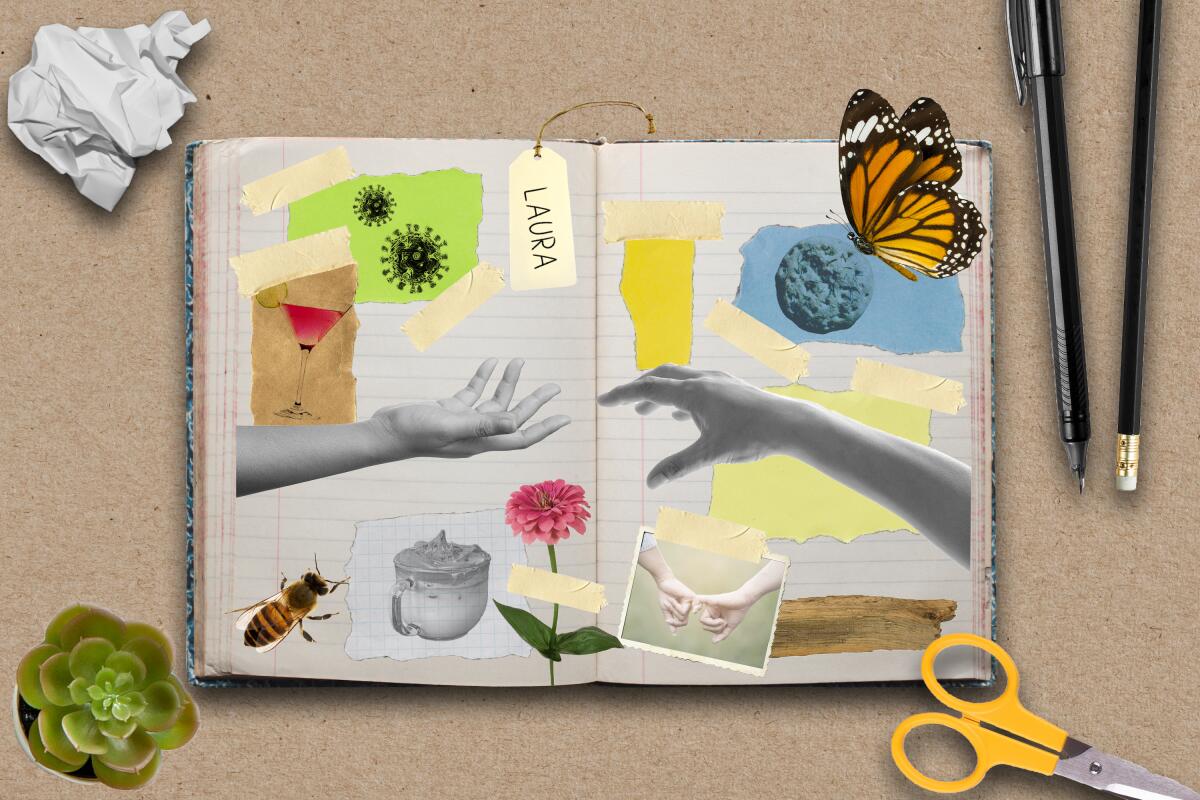
- Share via
Two ice cubes. One and a half ounces vodka. One ounce triple sec. A splash of lime and fill to the brim with cranberry juice.
Cradling my cosmo, I made my way to the couch and plopped in front of the TV. It was time for my nightly ritual: an absurdly fruity cocktail and an equally delicious episode of the cheesy Netflix drama “Firefly Lane.”
Much like “Bridgerton,” this is a show that the streaming service excels at: 50 minutes of cotton candy fluff that dissolve on impact into a sugary, sentimental binge watch. But to me, it’s so much more.
Why hike in Los Angeles? Lots of reasons. Use our guide to navigate 50 trails in Southern California, plus tips on gear and treats for the trail.
This is the first time in recent (read: pandemic) memory that I’ve seen a “big friendship” unfold on screen. Coined by authors Ann Friedman and Aminatou Sow, big friendship refers to “a strong, significant bond that transcends life phases, geographical locations and emotional shifts.”
Over the past year, I’ve obsessed over lots of things: baking focaccia, cutting and pasting collages, playing Fiona Apple’s “Fetch the Bolt Cutters” on repeat as a quarantine soundtrack. But my fascination with big friendship has persisted through leases ending, roommates leaving and weekly Zoom calls beginning.
So in the season finale of “Firefly Lane,” when I watched this big friendship that I had grown to love splinter on screen, it felt personal.
I was sitting in a bar with two friends and looking at my Tinder app. Edan’s nickname popped up. Wait. It couldn’t be my sixth-grade crush, could it?
“You had a lot of nerve showing up here,” Kate Mularkey (Sarah Chalke) tells her former best friend (Katherine Heigl) at her father’s funeral. “Leave, Tully. Go home, now. I don’t ever want to see you again.”
I rocked backward onto the couch, cosmo clinking. What just happened? Kate and Tully couldn’t break up; they were “Firefly Lane girls forever!” And, perhaps more pertinent, what did that mean for my own big friendships?
As the world begins to reopen, I wonder: Will the friendships I cultivated during the pandemic go the way of “Tiger King” and Dalgona coffee? Throughout this last year inside, I’ve tended to friendships — old and new — consciously and carefully, maybe for the first time in my life.
Artist Janel Foo wanted to do something to help amplify AAPI voices in L.A. More than 60 artists responded.
That had also been the case for the “Firefly Lane” girls through marriages, divorces, births, miscarriages, arrested mothers and closeted brothers. But one mysterious final blow (Netflix left us in the dark about what exactly) had ended a friendship three decades in the making. What’s to say that vaccinations and reopenings won’t do the same?
My first big friendships began in grade school over splashing in the creek that weaved through our hometown and art projects in museum basements. They evolved through high school, when I stumbled upon a friend group out of my indie teenage dreams. When I looked up at the end of college, I was surrounded by strong, brilliant, beautiful women who cooked family dinners and plastered our walls with their artwork.
But toward the end of college too came a wake-up call: A dear friend I had regarded as “my person” upon meeting freshman year sat me down before she moved across the country. We both knew the friendship hadn’t been working, that we had grown apart. But how? I wondered. We had lived together for years.
A hike is a good excuse to eat a sandwich. A sandwich improves every hike, and in L.A., you can almost always find one not far from the other.
Gently and maturely — with far more care and tenderness than I’m sure I deserved — she explained: Like any relationship, a friendship has needs. And as in every relationship, those needs are individual. For years now, I hadn’t been living up to hers.
It wasn’t like a fog lifted — in fact, it persisted — but shapes began to emerge. Instances when she had needed me and I hadn’t heard her.
“With friendship, we don’t really talk about what the thing is,” Allison Behringer said on a recent episode of “The Cut” podcast. “We say to each other, like, ‘You’re my person.’ We’re very affectionate with each other, but we haven’t had an official conversation.”
Whether you’re looking for ocean views or desert landscapes or soaring mountain peaks, Los Angeles offers miles upon miles of strikingly different trails.
In my case, never had we ever sat down and defined the relationship: What did we mean to each other? What were our needs? And how did we see the future of our friendship?
There were no easy answers (there still aren’t), but at least one clear takeaway: Friendships cannot be “set it and forget it” relationships. There are those with whom we can pick up right where we left off, but those are blessings — not givens. Even in those rare connections, it pays to check in: Hey, do you feel the same way I do about us?
The same friend who called me out (rightfully so) recommended Friedman and Sow’s “Big Friendship: How We Keep Each Other Close.” Released to rave reviews last summer, its message holds true: Friendship is just as important as romantic and family bonds.
Members of Gen Z think their ‘culture war’ with millennials over skinny jeans is, like a lot of things, overhyped.
“What’s incredible about friendship is that it allows you to be non-exclusively immersed in another person’s reality, to be intimately known by someone in a way that’s separated from the whims of sexual desire and the constraints of family,” Friedman and Sow write. “It’s a beautiful mix of independence and dependence, something you both have to continually opt in to.”
So why was it that I had strings of messages updating my partner and my parents about my daily doings but texted my group chats only with major life changes?
“Our goal is also to update each other more often with mundane occurrences,” one friend reported back to the group chat after a Zoom hangout.
Staying indoors is driving us crazy. Thanks to a new company, you can book a garden in Los Angeles just like an Airbnb.
“Even if you stub your toe or eat an onion!” responded another.
This, I hope, will be one key to keeping friendships alive and well as the world starts back up again. Of course, eventual safe travel to long-distance besties will help too, but communication, as we all know, is key.
“Don’t just occasionally think of your friend fondly,” write Friedman and Sow. “Tell them that your life would lose meaning if they disappeared from it. Tell them you love them.”
There’s no reason at all that platonic relationships should take up any less space in our lives than romantic endeavors. And big friendship, in my humble opinion, is a radical approach to happiness. I just hope that, as we rejoin the world, we don’t forget our friends.
More to Read
Sign up for The Wild
We’ll help you find the best places to hike, bike and run, as well as the perfect silent spots for meditation and yoga.
You may occasionally receive promotional content from the Los Angeles Times.
